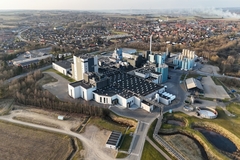
- Industry news
Industry news
- Category news
Category news
- Reports
- Key trends
- Multimedia
Multimedia
- Journal
- Events
- Suppliers
- Home
- Industry news
Industry news
- Category news
Category news
- Reports
- Key trends
- Multimedia
Multimedia
- Events
- Suppliers
Stollwerck and Baronie Support “Farmer Field Schools” Projects

The program is intended to empower farmers to increase the cocoa crop yield on a permanent basis and to achieve harvests of a better quality. Consequently, the training measures are also intended to contribute to an improvement in the incomes of farmers.

Feb 3 2012 --- The Dutch-Belgian chocolate manufacturer Baronie and the long-standing German Company Stollwerck – both subsidiaries of Belgium’s Sweet Products Group – are now supporting an extensive training program for Ivorian cocoa farmers, which the chocolate supplier Cargill is to implement at local level as part of the Cargill Sustainable Cocoa Program, together with partners such as Anader and Solidaridad. The program is intended to empower farmers to increase the cocoa crop yield on a permanent basis and to achieve harvests of a better quality. Consequently, the training measures are also intended to contribute to an improvement in the incomes of farmers.
The program is initially intended to run for a period of four years. An integral part of the so-called Farmer Field Schools practical training onsite – is that the participating farms obtain certification for sustainable cocoa cultivation from UTZ CERTIFIED. In total the project is to promote two cocoa cooperatives close to Gagnoa, which each have between 400 and 500 cocoa farmers.
The training courses, each of which lasts ten months and takes the form of intensive half-day units, primarily cover the conversion to sustainable agricultural practices and consideration of numerous social issues. Thus the training units attended by the cocoa farmers will, among other things, cover the care of cocoa trees, including pruning techniques and regeneration measures, preventive disease control, and above the early detection of “black pod” and other cocoa diseases, the use of fertilizers, harvesting when the fruit have reached their optimum ripeness, and the professional post-harvest treatment, including fermentation and drying of the beans so as to avoid a deterioration in the quality of raw materials. Furthermore, the farmers are to learn to seamlessly document all the necessary steps.
A further aspect of the training covers social issues such as raised awareness of HIV, responsible working conditions, the fundamental significance of school education for children, and intolerance of child labor.
All of the 900 cocoa farmers will have successfully completed the training program in time for the 2012/2013 harvest that starts on October 2012. It is the aim of this project that to all of them already reached the level required for UTZ CERTIFIED certification by then.
At present the two cooperatives Cooperative Agricole de Guibéroua and Coopérative des Producteurs de Béhibrokro being supported by Stollwerck and Baronie supply some 1,700 tons of cocoa during this harvest. Cargill, which will implement the training courses together with local partners, expects an average increase of 30 percent in the crop yield with a clear upturn in quality.
“Baronie and Stollwerck themselves support development initiatives at grass roots level so as to contribute to more and more farmers being able to convert from conventional to sustainable cocoa farming and thus enhance their opportunities for economic survival. An increase in profitability not only secures a livelihood for farmers and their families, but also helps ensure that farmers will enjoy cultivating cocoa in the future,” said Jean-Marie van Logtestijn, Sweet Products spokesperson.
The project partners have agreed to provide information on the progress of the training program at regular intervals. The reporting is intended to guarantee more transparency and understanding among European customers for the framework conditions in the cultivation of cocoa.










